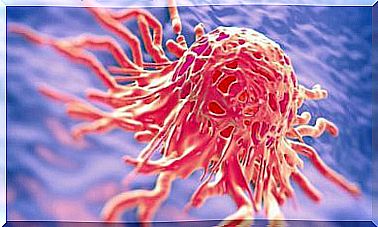Typical Signs Of Magnesium Deficiency
Magensium is crucial for the production of energy. When this mineral is lacking, it affects all of the body’s systems. Among other things, a magnesium deficiency can lead to diabetes.

Today’s post is about typical signs of magnesium deficiency, because a lot of people in industrialized countries suffer from it without being aware of it.
The diagnosis of magnesium deficiency is usually not clearly established with a blood test. Only 1% of the magnesium is in the blood, so a blood test only shows a drastic magnesium deficiency.
There are still many doctors who do not include a corresponding analysis in their examinations, which is why many are not aware of a magnesium deficiency.
Typical signs of magnesium deficiency
After water, oxygen and the basic foodstuffs, magnesium is one of the most important substances for our organism .
This mineral is fundamental for our development and vital functions, even more important than calcium, sodium or potassium, as it is responsible for regulating these three substances.
One of the most common symptoms of magnesium deficiency is a constant, unquenchable feeling of thirst. The reason for this is that not enough nutrients are absorbed through the diet. Our body expresses this deficiency with a desire for fluids.

Magnesium deficiency can cause sleep disorders, increase stress and reduce athletic performance. The quality of life is also severely impaired.
The first signs of a magnesium deficiency are hardly noticeable. However, over time, leg cramps, foot pain, or muscle twitching tend to occur for no reason whatsoever.
The situation then slowly worsens, resulting in rigidity, cramps, frequent tingling and, in extreme cases, cardiac spasms, personality changes and abnormal heart rhythms.
Magnesium starvation can affect any organ, especially muscles. Therefore, pain or tension and cramps, as well as spasms, occur. Disturbances in the jaws, headache, or pressure on the chest appear, making it difficult to breathe deeply.

The muscles tense, which can cause constipation, menstrual cramps in women, spasms when urinating, swallowing disorders, lumps in the neck, sensitivity to light and noise, insomnia, anxiety, panic attacks and hyperactivity.
But tingling sensation, numbness of the limbs, dizziness or nerve problems can also occur as a result.
As for the cardiovascular system, magnesium deficiency can cause cardiac arrhythmias, palpitations, chest tightness, arterial spasms, hypertension and mitral valve prolapse.
Why is magnesium so important?
Our organism needs magnesium for practically all functions. If there is too little magnesium in the cells, the permeability of the membranes for potassium, sodium and calcium increases. This increases the excitability of the nerve cells.
Magnesium also activates many very important enzymes. In addition, it synthesizes proteins, carbohydrates and fatty acids. The mineral is also essential for energy production.
A lack of magnesium can also trigger diabetes. This has been confirmed in various studies.

Magnesium in the diet
The German Nutrition Society (DGE) recommends adolescents and adults a daily amount of 300 to 400 mg magnesium. Nuts in particular (almonds, cashews, walnuts) contain a large amount of this mineral.
Legumes (e.g. peas) are also characterized by a high magnesium content.
A magnesium-rich diet plan could look like this:
- Breakfast: A cup of tea with semi-fat milk and two slices of multigrain bread.
- Mid-morning snack: 10 walnuts or 10 almonds.
- Lunch: One cup of raw spinach, 120 g of tuna and one cup of cooked whole grain rice. Pudding with two chopped walnuts for dessert.
- Afternoon: A semi-fat yogurt with cereals and an apple. Alternative: 2 rice or oat biscuits with a handful of raisins.
- Dinner: Turkey breast with chard pudding and tomato and cucumber salad. Half a cup of strawberries for dessert .










